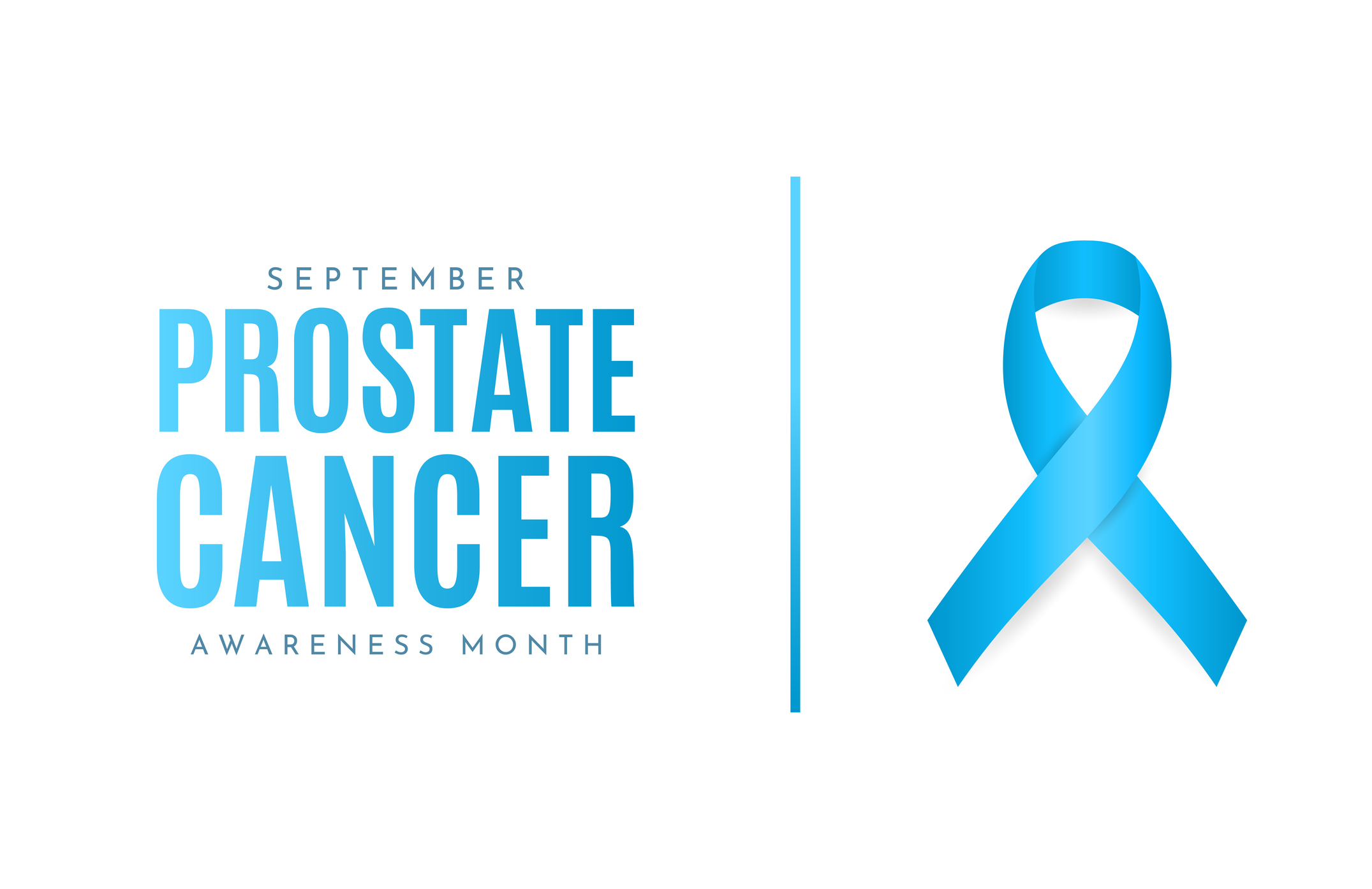How You Can Join the Fight Against Prostate Cancer This Month

Understanding the Importance of Prostate Cancer Awareness

Prostate cancer is a significant health concern affecting millions of men around the world. It is important to raise awareness about this disease as early detection can greatly improve prognosis and treatment outcomes. By understanding the importance of prostate cancer awareness, we can empower individuals to take proactive steps towards their health and well-being.
Raising awareness about prostate cancer helps educate men about the risk factors, symptoms, and available screening options. According to the American Cancer Society, age, family history, and race are factors that can increase the likelihood of developing prostate cancer. By being aware of these factors, men can take preventive actions and discuss screening options with their healthcare providers. Additionally, understanding the symptoms associated with prostate cancer, such as frequent urination, weak urine flow, or blood in the urine, can prompt men to seek medical attention and potentially detect the disease at an earlier stage.
By spreading awareness about prostate cancer, we also encourage individuals to engage in open conversations about prostate health. These discussions foster a sense of community and support, allowing men to share experiences, seek advice, and gain valuable insights. Increasing dialogue around this topic reduces stigmas and promotes a culture of open communication, making it easier for men to seek help or support when needed.
In conclusion, understanding the importance of prostate cancer awareness is pivotal in promoting early detection and better outcomes for both individuals and their families. By educating ourselves and others about the risk factors, symptoms, and available screening options, we can take proactive steps towards improving prostate health in our communities. Let us join forces in spreading awareness and making a positive impact on the lives of those affected by prostate cancer.
Promoting Early Detection and Regular Screenings

Prostate cancer is the second most common cancer among men worldwide, emphasizing the importance of early detection and regular screenings. Screening tests, such as the prostate-specific antigen (PSA) blood test and digital rectal examination (DRE), play a crucial role in identifying the disease at its initial stage when treatment is most effective.
The PSA blood test measures the level of a protein called PSA, produced by the prostate gland. Elevated levels of PSA can indicate the presence of prostate cancer. While the PSA test can be an effective screening tool, it is important to note that a high PSA level does not always indicate cancer and further evaluation may be necessary. The DRE involves a physical examination of the prostate gland by a healthcare professional, checking for any abnormalities or irregularities. Combining both PSA testing and DRE can provide a comprehensive assessment of an individual’s risk for prostate cancer.
Regular screenings are particularly important for individuals with risk factors, such as age, family history, and ethnicity. While the risk of developing prostate cancer increases with age, it is recommended that men discuss the appropriate time to begin screening with their healthcare provider. African American men and those with a family history of prostate cancer may have a higher risk and should engage in conversations regarding earlier and more frequent screenings. Through proactive measures, such as promoting early detection and regular screenings, we can increase the chances of detecting prostate cancer at its early stages, enhancing the likelihood of successful treatment and improved outcomes.
Recognizing the Risk Factors for Prostate Cancer
Prostate cancer is the second most common cancer among men worldwide, with a higher incidence in older age groups. While the exact cause of prostate cancer is still unknown, there are certain risk factors that have been identified. Age is one of the primary risk factors, with the majority of cases occurring in men over the age of 65. Advancing age leads to changes in the prostate gland, making it more susceptible to cancerous growths.
Family history also plays a significant role in determining one’s risk of developing prostate cancer. Men with a close family member, such as a father or brother, who has had prostate cancer are more likely to develop the disease themselves. This suggests a possible genetic component to prostate cancer development. Additionally, certain ethnicities, such as African Americans, have a higher risk of prostate cancer compared to other populations. These risk factors highlight the importance of early detection and regular screenings for men, particularly those with a family history of the disease or belonging to high-risk groups.
Spreading Awareness through Social Media Campaigns
Social media has revolutionized the way we communicate and connect with others, and it has also become a powerful tool in spreading awareness about important health issues, including prostate cancer. Through social media campaigns, individuals and organizations can reach a wide audience, educate them about the importance of early detection and regular screenings, and provide information about the signs and symptoms of prostate cancer. These campaigns often utilize various mediums, such as infographics, videos, and personal stories, to engage and inform the public.
One of the key advantages of social media campaigns is their ability to rapidly disseminate information to a large number of people. With just a few clicks, individuals can share educational content, raise awareness, and debunk common misconceptions about prostate cancer. This not only helps to enhance public understanding about the disease but also encourages individuals to take proactive steps to protect their prostate health. Additionally, social media allows for real-time interaction, enabling individuals to ask questions, seek advice, and participate in discussions, fostering a sense of community and support among those affected by prostate cancer.
• Social media campaigns can reach a wide audience and educate them about the importance of early detection and regular screenings for prostate cancer.
• These campaigns utilize various mediums, such as infographics, videos, and personal stories to engage and inform the public.
• Social media allows for rapid dissemination of information to a large number of people with just a few clicks.
• Individuals can share educational content, raise awareness, and debunk common misconceptions about prostate cancer through social media campaigns.
• Real-time interaction on social media platforms enables individuals to ask questions, seek advice, and participate in discussions related to prostate cancer.
• Social media fosters a sense of community and support among those affected by prostate cancer.
| Social Media Campaigns for Awareness | Key Concepts | Credible Source |
|---|---|---|
| Targeted Messaging | Craft messages focused on specific awareness goals. | HubSpot – Social Media Campaigns |
| Engagement Strategies | Foster audience participation and interaction for broader reach. | Hootsuite – Social Media Engagement |
| Visual Content Impact | Use compelling visuals to enhance campaign visibility and shareability. | Sprout Social – Visual Social Media Strategy |
| Data Analytics for Evaluation | Utilize analytics to measure campaign effectiveness and adjust strategies. | Buffer – Social Media Analytics |
Supporting Prostate Cancer Research and Fundraising Events

Prostate cancer research and fundraising events play a crucial role in advancing our understanding of this disease and driving progress towards effective treatments. Through these events, researchers are able to secure funding for studies that aim to uncover new insights into the biology, causes, and risk factors of prostate cancer.
Thanks to the support of individuals, organizations, and communities, these fundraising events provide the necessary resources for innovative research projects that can potentially transform the diagnosis, treatment, and prevention of prostate cancer. They also offer a platform for scientists and clinicians to collaborate, exchange ideas, and share their findings, fueling further advancements in the field.
By actively participating in and supporting prostate cancer research and fundraising events, we can make a tangible impact on the lives of individuals affected by this disease. Together, we can accelerate medical progress and move closer to a future where prostate cancer is not only better understood but also effectively treated, leading to improved outcomes and enhanced quality of life for patients.
Educating Yourself and Others about Prostate Cancer Symptoms
Prostate cancer is a prevalent disease among men worldwide, and being aware of its symptoms is crucial for early detection and prompt treatment. Educating yourself and others about prostate cancer symptoms can help save lives. It is important to note that symptoms may vary from person to person and may not always indicate the presence of cancer. However, understanding the common signs can assist in identifying any potential issues and seeking appropriate medical attention.
One of the primary symptoms of prostate cancer is urinary issues. Men may experience frequent urination, particularly during the night. They may also have difficulty starting and stopping urine flow or feel a weak urine stream. Additionally, some individuals may notice blood in their urine or semen. It is important to remember that these symptoms can sometimes result from non-cancerous conditions, such as urinary tract infections or benign prostatic hyperplasia (BPH). Nevertheless, it is critical to consult a healthcare professional if any of these symptoms persist or worsen, as they may require further evaluation and testing.
By increasing awareness of prostate cancer symptoms, we can empower individuals to take charge of their health and seek timely medical assistance. The more we educate ourselves and others about the signs of prostate cancer, the better equipped we are to identify potential issues and seek appropriate care. Regular check-ups with healthcare professionals, especially for men over the age of 50, can aid in early detection and increase the chances of successful treatment. It is essential to remember that prostate cancer is highly treatable when detected early, highlighting the significance of spreading awareness and educating ourselves and our loved ones about its symptoms.
Sharing Inspiring Stories of Prostate Cancer Survivors
Prostate cancer survivors have an immense impact on raising awareness and providing hope to those currently battling the disease. These inspiring individuals demonstrate the strength and resilience necessary to overcome the challenges that prostate cancer presents. By sharing their stories, they offer comfort, encouragement, and valuable insights into the journey of prostate cancer treatment and survival.
Each survivor’s story is unique, providing a window into their personal experiences with prostate cancer, from the initial diagnosis to the various treatment options they pursued. These stories shed light on the emotional, physical, and psychological aspects of the disease, as well as the importance of early detection and the significance of a strong support system. By sharing their journeys, survivors contribute to breaking the silence surrounding prostate cancer, encouraging open discussions, fostering understanding, and creating a sense of community among those affected by the disease.
Encouraging Open Conversations about Prostate Health
Open conversations about prostate health are crucial in promoting awareness and destigmatizing the topic. By encouraging men to engage in discussions about their prostate health, we empower them to take control of their well-being. It is important for individuals to understand that talking openly about prostate health is not only acceptable but also advantageous in preventing and managing potential issues.
Creating a supportive environment where men feel comfortable discussing their concerns and asking questions is essential. Whether it be with healthcare providers, friends, or family members, open conversations can help dispel myths and misconceptions surrounding prostate health. It can also encourage men to seek medical advice and stay informed about the latest advancements in prostate cancer research and treatment options. By promoting dialogue, we can contribute to the early detection and management of prostate-related conditions, ultimately improving the overall health outcomes for men.
Advocating for Improved Access to Prostate Cancer Treatment
Improved access to prostate cancer treatment is crucial in order to ensure that all individuals have equal opportunities for early detection and effective management of the disease. One key aspect of advocating for improved access is addressing barriers that may prevent individuals from receiving timely and appropriate treatment. These barriers can include financial limitations, lack of awareness or understanding about available treatment options, and limited access to healthcare facilities.
To address these barriers, it is essential for healthcare organizations, policymakers, and advocacy groups to work together to develop strategies that focus on increasing affordability, accessibility, and education regarding prostate cancer treatment. This can be achieved through the implementation of policies that promote insurance coverage for prostate cancer screenings and treatments, as well as the establishment of clinics and support centers in underserved areas. Additionally, community awareness campaigns and educational programs can help to disseminate accurate information and empower individuals to make informed decisions about their prostate health.
By advocating for improved access to prostate cancer treatment, we can help to ensure that all individuals, regardless of their socioeconomic status or geographical location, have the opportunity to receive the care they need. Through collaborative efforts and a commitment to addressing barriers, we can make significant progress in reducing the burden of prostate cancer and improving outcomes for those affected by the disease. Together, let us strive for a future where access to life-saving treatments is a reality for all individuals battling prostate cancer.
Supporting Prostate Cancer Support Groups and Organizations
Prostate cancer support groups and organizations play a crucial role in providing valuable resources and support to individuals and their families affected by this disease. These support groups serve as a safe space where patients can share their experiences, concerns, and challenges with others who understand firsthand what they are going through. Connecting with others who have faced similar situations can provide a sense of community and empowerment, helping patients feel less isolated and more supported during their prostate cancer journey.
Furthermore, prostate cancer support groups and organizations offer a wealth of information and educational materials to help patients and their loved ones better understand the disease. Through workshops, seminars, and educational sessions, these groups provide a platform for individuals to learn about prostate cancer risk factors, symptoms, treatment options, and ways to cope with the physical and emotional aspects of the disease. By disseminating accurate and up-to-date information, these organizations empower individuals to make informed decisions about their healthcare and take an active role in their treatment journey.
Overall, supporting prostate cancer support groups and organizations is essential in ensuring that those affected by this disease have access to the necessary resources, information, and emotional support. By promoting awareness and encouraging participation in these groups, we can join forces to lessen the burden of prostate cancer and improve the quality of life for patients and their families.
Engaging in Physical Activities to Promote Prostate Health
Physical activity plays a crucial role in promoting prostate health. Regular exercise has been associated with a reduced risk of developing prostate cancer and can also help in managing the symptoms of the disease. Engaging in physical activities such as brisk walking, jogging, cycling, swimming, and weight training can contribute to overall prostate health.
Research studies suggest that exercise helps in maintaining a healthy body weight, which is important as obesity has been linked to an increased risk of prostate cancer. Exercise also improves cardiovascular health and enhances immune system function, which can indirectly contribute to prostate health. Additionally, physical activity helps to reduce stress levels, which may have a positive impact on prostate health as stress has been found to affect prostate function negatively.
It is important to consult with a healthcare professional before starting any exercise routine, especially if you have any pre-existing medical conditions or concerns. They can guide you on the appropriate exercise intensity and duration based on your individual health status. Engaging in regular physical activities can be a simple yet effective way to support prostate health and overall well-being.
Encouraging Regular Exercise and a Healthy Lifestyle
Regular exercise and a healthy lifestyle play a crucial role in maintaining overall well-being and reducing the risk of various health conditions, including prostate cancer. Engaging in physical activities such as brisk walking, jogging, swimming, or cycling can help improve cardiovascular health, manage weight, and strengthen the immune system. These benefits are particularly significant for men, as they contribute to promoting prostate health and reducing the risk of developing prostate cancer.
According to a study published in the Journal of Urology, regular exercise has been shown to lower the risk of aggressive prostate cancer. Incorporating at least 150 minutes of moderate-intensity aerobic activity or 75 minutes of vigorous-intensity activity each week is recommended by the American Cancer Society. It is important to choose activities that are enjoyable and can be sustained over time to encourage consistency. Alongside regular exercise, adopting a healthy diet rich in fruits, vegetables, whole grains, and lean proteins can further support prostate health. The Prostate Cancer Foundation advocates for a balanced diet that includes foods such as tomatoes, cruciferous vegetables, green tea, fatty fish, and nuts, as they have been linked to a reduced risk of prostate cancer. By incorporating regular exercise and following a healthy lifestyle, individuals can proactively care for their prostate health and reduce the likelihood of developing prostate cancer.
Providing Emotional Support to Prostate Cancer Patients and their Families
Prostate cancer not only affects the physical health of patients, but it also takes a toll on their emotional well-being. Dealing with a cancer diagnosis can bring about various psychological challenges, including anxiety, depression, and fear. It is crucial to provide emotional support to prostate cancer patients and their families to help them navigate through this difficult journey.
One way to offer emotional support is by creating a safe space for open conversations and active listening. Encouraging patients and their families to share their thoughts, worries, and fears can help them release some of the emotional burden they may be carrying. As a healthcare professional, it is important to adopt a compassionate and empathetic approach, acknowledging their emotions and providing reassurance whenever possible. Additionally, educating patients and their families about the common emotional struggles associated with prostate cancer can help normalize their experiences and reduce any feelings of isolation or shame they may be experiencing.
Celebrating Prostate Cancer Awareness Month and its Impact.
September is recognized as Prostate Cancer Awareness Month, a time dedicated to raising awareness about prostate cancer and highlighting the impact this disease has on countless individuals and their families. Throughout this month, various organizations, medical professionals, and communities come together to educate the public about the importance of early detection, provide resources for support, and promote advancements in prostate cancer research.
The impact of Prostate Cancer Awareness Month goes beyond simply spreading knowledge about the disease. It serves as an opportunity to empower individuals with the information they need to take charge of their own health and make informed decisions. By increasing awareness, more men are inspired to undergo regular screenings and seek medical help if they experience any symptoms or risk factors associated with prostate cancer. This heightened awareness not only improves individual outcomes but also contributes to the overall improvement in societal health by reducing the burden of advanced-stage cancer cases. With ongoing advancements in treatment options and improved access to care, celebrating Prostate Cancer Awareness Month allows us to acknowledge the progress made in combatting this disease while emphasizing the importance of continued education and support.
What is Prostate Cancer Awareness Month?
Prostate Cancer Awareness Month is a dedicated time during September to raise awareness about prostate cancer, educate the public about its risks and symptoms, and promote early detection and treatment.
Why is prostate cancer awareness important?
Prostate cancer is the second most common cancer among men worldwide. Raising awareness helps individuals understand the importance of screening, recognizing risk factors, and seeking early treatment, ultimately saving lives.
How can I promote early detection and regular screenings?
It’s crucial to encourage men over the age of 50, or those with a family history, to speak with their healthcare providers about regular screenings such as the prostate-specific antigen (PSA) test or digital rectal exam (DRE).
What are the risk factors for prostate cancer?
Risk factors include age, family history, race (higher incidence among African-American men), obesity, and certain genetic mutations. Understanding these factors can help individuals assess their risk and take appropriate action.
How can social media campaigns help spread prostate cancer awareness?
Social media platforms provide an opportunity to share information, stories, and resources about prostate cancer. By participating in or organizing social media campaigns, individuals can reach a wider audience, fostering awareness and education.
How can I support prostate cancer research and fundraising events?
Supporting research and fundraising events can be done by making donations, participating in charity walks or runs, or volunteering your time to help organize or promote these activities.
What are some common symptoms of prostate cancer?
Symptoms may include frequent urination, difficulty starting or stopping urination, weak flow, blood in urine or semen, erectile dysfunction, and pain in the back, hips, or pelvis. It’s important to consult a healthcare professional if you experience any of these symptoms.
How can I encourage open conversations about prostate health?
By initiating discussions with friends, family, and colleagues, you can break the stigma around prostate health and encourage men to prioritize regular screenings and take proactive steps towards a healthy lifestyle.
How can I advocate for improved access to prostate cancer treatment?
You can advocate for improved access to prostate cancer treatment by supporting organizations that work to improve healthcare policies, spreading awareness about the issue, and contacting local representatives to voice your concerns.
How can I support prostate cancer support groups and organizations?
You can support these groups and organizations by volunteering, attending support group meetings, or making donations. They provide valuable resources, emotional support, and education to those affected by prostate cancer.
How can physical activities promote prostate health?
Regular physical activities such as walking, jogging, swimming, or cycling can help maintain a healthy weight, improve overall well-being, and reduce the risk of prostate cancer. Engaging in such activities is beneficial for prostate health.
How does maintaining a healthy lifestyle contribute to prostate health?
Eating a balanced diet rich in fruits, vegetables, and whole grains, limiting red meat intake, avoiding tobacco and excessive alcohol consumption, and managing stress can significantly contribute to maintaining prostate health.
How can I provide emotional support to prostate cancer patients and their families?
Providing emotional support involves being a good listener, offering a shoulder to lean on, encouraging open conversations, and being empathetic towards the challenges patients and their families may face. Additionally, suggesting support groups or therapy can be helpful.
How can we celebrate Prostate Cancer Awareness Month and its impact?
We can celebrate by acknowledging the progress made in prostate cancer awareness, research, and treatment, sharing inspiring stories of survivors, participating in awareness events, and continuing to educate ourselves and others about the disease.






